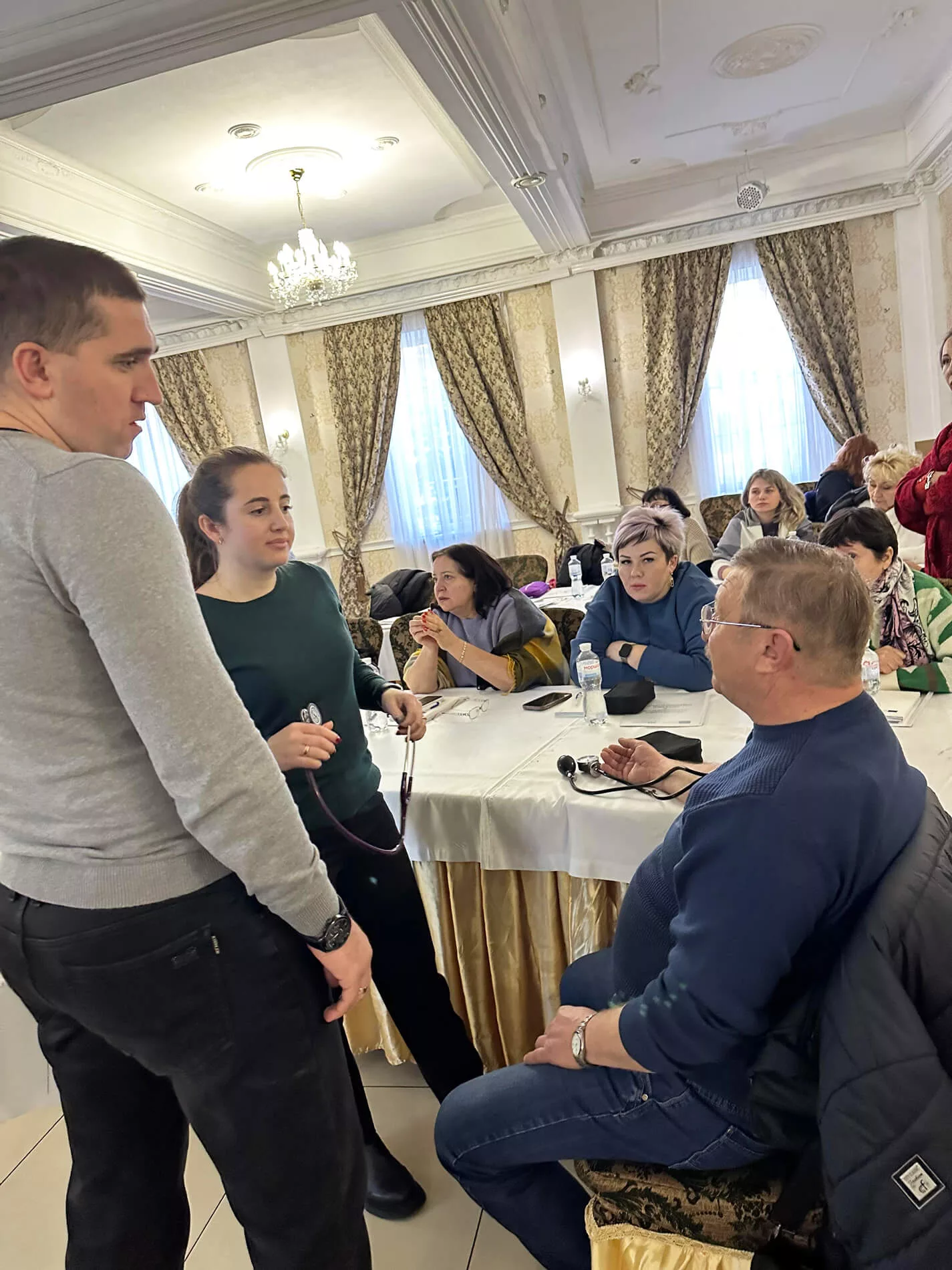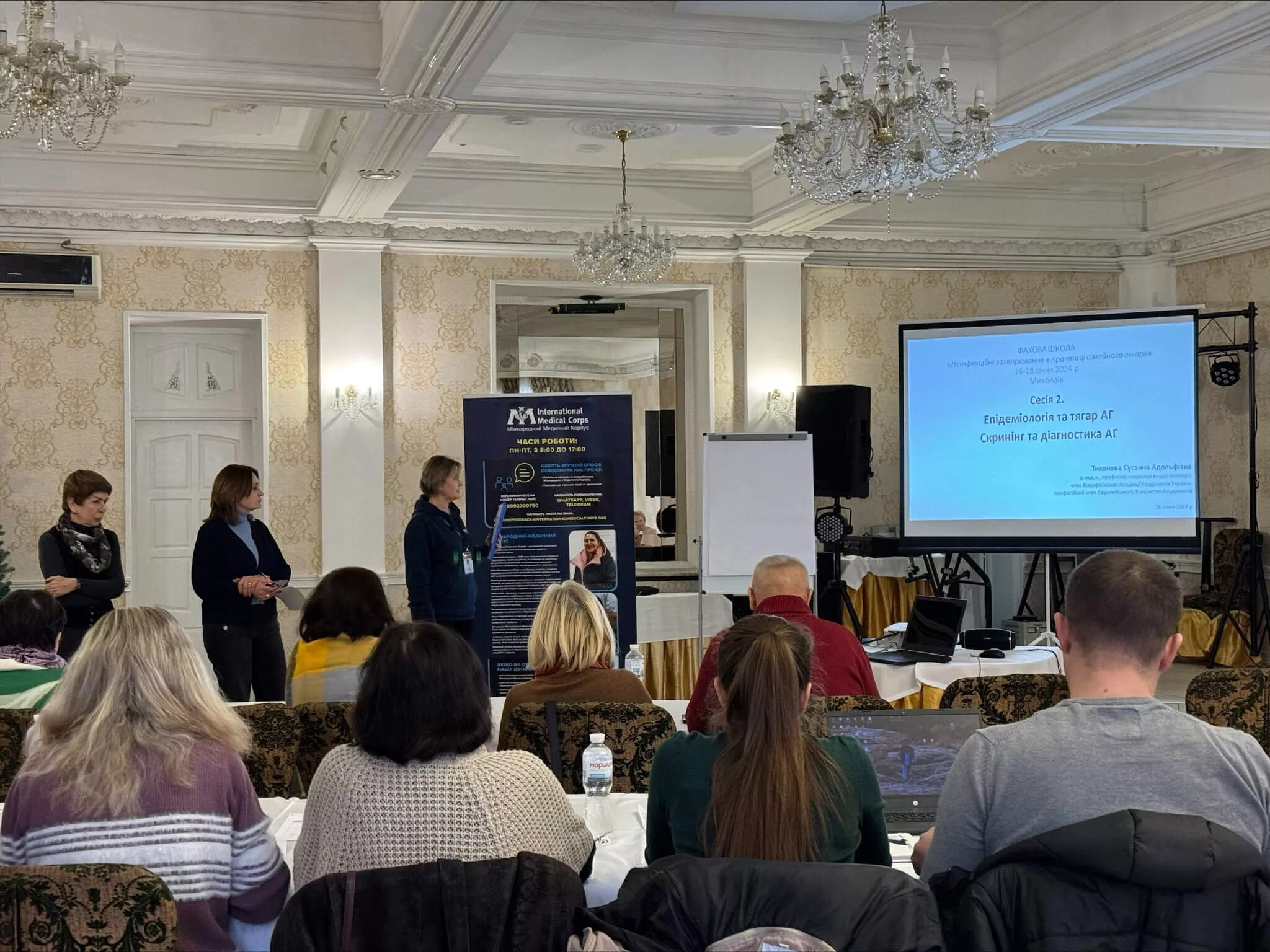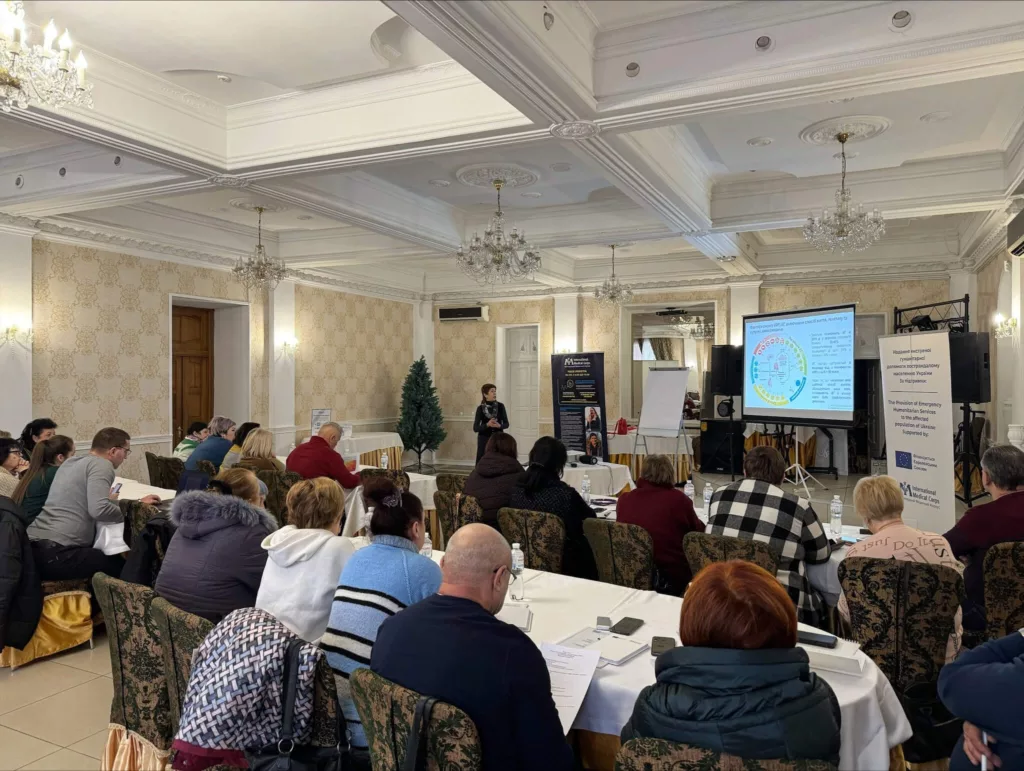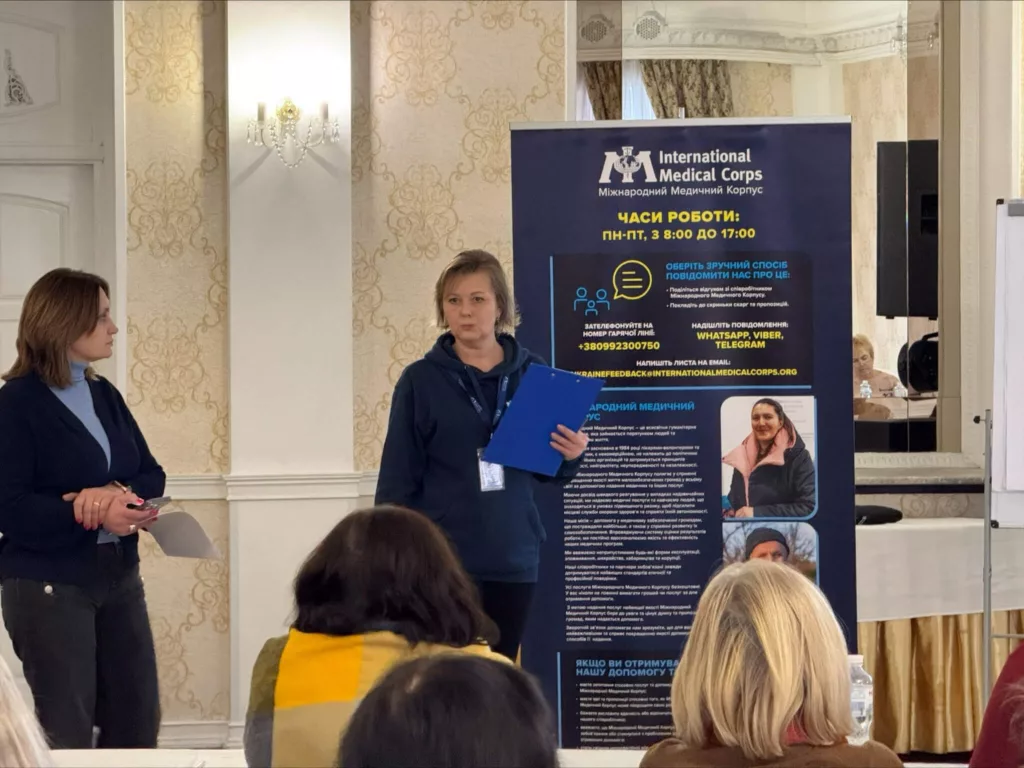In times of war, treatable medical conditions can turn deadly when health facilities are damaged or destroyed. This brutal reality rings true in Ukraine. In 2021, before the Russian invasion launched the country into full-blown war, 91% of deaths were from chronic diseases, also known as noncommunicable diseases (NCDs). Currently, 9 million people in Ukraine are living with NCDs—including 2 million people with diabetes—and nearly one-third of the population lives with high blood pressure.
Though the Kherson and Mykolaiv regions were liberated more than a year ago, recovery has been challenging. Outpatient clinics and polyclinics are being repaired and rebuilt, and new equipment needs to be purchased. And doctors face a new problem—during the Russian occupation, residents did not receive sufficient medical care, exacerbating their chronic diseases. Add to that the stress of living close to the front lines, and the incidence of heart attacks and strokes has increased.
In response, International Medical Corps partnered with the Family Doctor’s Association of Southern Ukraine and professors from the Odesa National Medical University to conduct two three-day training sessions—one in January and one in February—for family doctors and general practitioners in Kherson and Mykolaiv to help them address NCDs in their practice.
“Noncommunicable diseases are an epidemic that is not airborne but affects most of the population of Ukraine,” explains Dr. Susanna Tihonova, one of the trainers and an author of the Ukrainian protocols and guidelines for treating NCDs. “For the first time in two years, our brave heroes who protect our health had an opportunity to update their knowledge, have discussions with their colleagues, and strengthen their awareness, thanks to International Medical Corps.”
The training sessions covered several topics, including:
- arterial hypertension and modern treatment schemes;
- diagnosis methods and treatment for prediabetes and diabetes types 1 and 2;
- hypercholesterolemia and obesity;
- lifestyle changes and nutrition.


During the training, the physicians worked on their practical skills, discussed cases, learned how to develop individualized treatment plans and improved their communication skills by rehearsing different patient scenarios with each other.
“Working in a team with my wonderful colleagues during the training improved my practical skills,” explains Dr. Lilia Briadko, a general practitioner from the Halitsynovskyi Center of Primary and Sanitation Care in the Mykolaiv region. “I feel more confident meeting with co-morbid patients. I am not afraid to be alone with their problems.”

“I was grateful for the chance to get modern updates from professors who have implemented the Ukrainian national protocols,” adds Dr. Dmitro Irchenko, a family doctor from the Kherson City Clinical Hospital.
In partnership with the Harvard Humanitarian Initiative, International Medical Corps also provides comprehensive emergency-and trauma-care training to healthcare workers, public safety professionals and the Ukrainian community. Learn more about this training program and our ongoing work in Ukraine.
